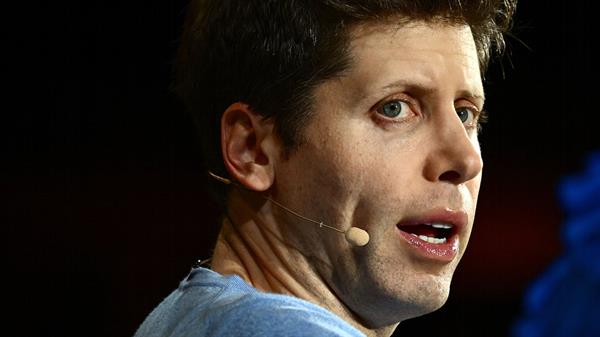After being fired last week, Sam Altman has been reinstated as CEO of OpenAI following an outpouring of support from employees and investors.
In an extraordinary turn of events, Sam Altman has been reinstated as CEO of OpenAI just days after being ousted by the company's board of directors. The decision comes after a week of turmoil at OpenAI, which saw nearly all of its 750 employees threaten to quit in protest of Altman's firing.

Altman, who co-founded OpenAI in 2015, was fired last Friday by the board, which cited unspecified "differences in strategic vision" as the reason for his termination. However, the move was met with immediate backlash from OpenAI employees, who praised Altman's leadership and accused the board of making a rash decision.
In a letter to employees, Altman said that he was "deeply disappointed" by the board's decision, but that he was "committed to fighting for the future of OpenAI." He also said that he was "overwhelmed" by the support he had received from employees and investors.
We have reached an agreement in principle for Sam Altman to return to OpenAI as CEO with a new initial board of Bret Taylor (Chair), Larry Summers, and Adam D'Angelo.
— OpenAI (@OpenAI) November 22, 2023
We are collaborating to figure out the details. Thank you so much for your patience through this.
The outpouring of support for Altman led to calls for his reinstatement, and on Wednesday, the board announced that it had reached an agreement in principle for him to return as CEO. The new board will be chaired by Bret Taylor, the former co-CEO of Salesforce. It will also include Larry Summers, the former president of Harvard University, and Adam D'Angelo, the founder of Quora.
Altman's return to OpenAI marks a victory for the company's employees and investors, who had been vocal in their opposition to his firing. It also raises questions about the future of OpenAI's board, which has been widely criticized for handling the situation.
The events leading up to Altman's ouster began in October when OpenAI announced that it was partnering with Microsoft to develop a new AI supercomputer. The deal was met with mixed reactions from OpenAI employees, some of whom were concerned about the potential for Microsoft to exert too much control over the company.
In the weeks that followed, tensions between Altman and the board reportedly escalated. The board was reportedly unhappy with Altman's handling of the Microsoft deal and with his overall leadership of the company.
On Friday, the board decided to fire Altman and informed him of their decision at a meeting. Altman was reportedly "stunned" by the decision, and he immediately began to fight back.
Within hours of Altman's firing, OpenAI employees began to rally around him. They sent a letter to the board expressing their support for Altman and demanding his reinstatement. They also threatened to quit if their demands were not met.
The employee revolt put the board in a difficult position. They knew that firing Altman would be unpopular with employees, but they also believed they had made the right decision for the company.
Microsoft's role in the events at OpenAI is unclear. The company has said that it was not involved in Altman's firing, but it is possible that the Microsoft deal played a role in the board's decision.
Some have speculated that the board was concerned that Altman was too close to Microsoft and that he was not putting the company's interests first. Others have suggested that the board was simply looking for a scapegoat for the company's recent struggles.
Altman's return to OpenAI is likely to have a significant impact on the company's future. The employee revolt has shown that he has the strong support of the company's workforce, and he is likely to have more freedom to pursue his own vision for the company.
However, Altman's relationship with the board remains tense, and it is unclear how long he will be able to remain CEO. It is also possible that Microsoft could still try to exert more control over OpenAI, which could lead to further conflict.
Only time will tell what the future holds for OpenAI, but the company is certainly at a crossroads. Altman's return is a victory for his supporters, but it also raises a number of questions about the company's future.
PREVIOUS STORY